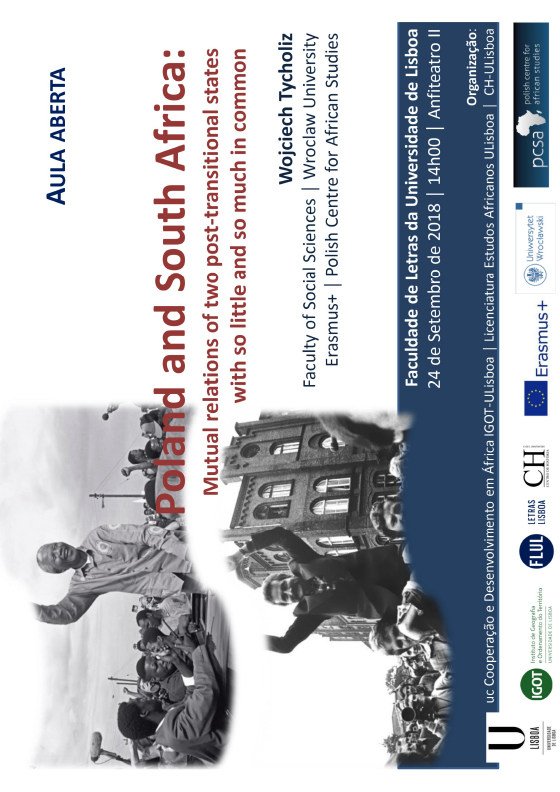Poland and South Africa: Mutual relations of two post-transitional states with so little and so much in common | Aula aberta
Faculdade de Letras da Universidade de Lisboa, 24 de Setembro de 2018, Anfiteatro II, às 14:00
Organização | Licenciatura Geografia IGOT-ULisboa; Licenciatura Estudos Africanos ULisboa; UC Cooperação e Desenvolvimento em África; Centro de História da Universidade de Lisboa
Descarregar cartaz

Wojciech Tycholiz
Faculty of Social Sciences, Wroclaw University
Erasmus+, Polish Centre for African Studies
Poland’s 1989 round-table talks and agreement are often presented as a text-book example on how to successfully defuse growing social unrest. The success of the Polish case was subsequently replicated in South Africa to dismantle apartheid. But modern relations between the Republic of Poland and the Republic of South Africa are much more than mutual admiration of peaceful transitions – and not only because one Pole murdered the most famous and iconic leader of struggle for liberation in South Africa (and the would-be President of the country) and another Pole was a major shareholder in one of the biggest South African companies. As goes the saying: nothing unites more than a common enemy – both countries supported each other in their struggles against arch enemies, cooperated on economic and social issues, and both had been subjects to colonial powers. But as the memories of shared experience are fading away, other challenges make the distance between Poland and South Africa much bigger than it is on the map.

